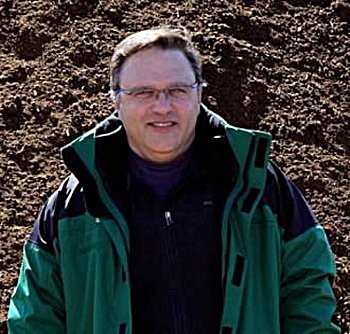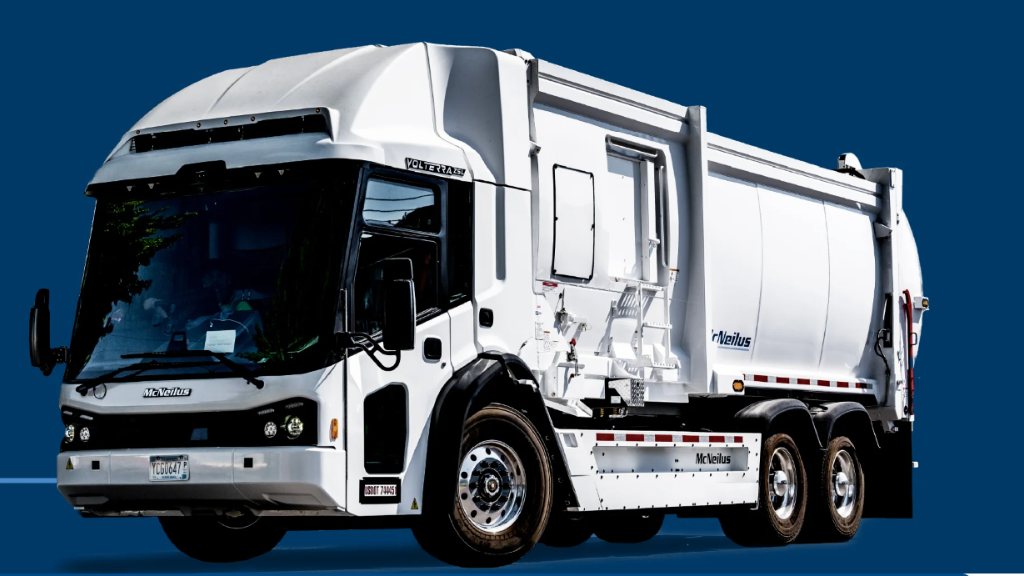Municipalities need to help to keep up with demand for composting according to USCC
We are All Community Composters: time to stop kicking the can down the road

Some US Composting Council (USCC) members and staff have been on conference panels with our colleagues in the traditional recycling industry during the past year, and we've heard some harrowing tales. Tales are circulating of the cancellation of glass programs, the suspension of curbside recycling contracts, and of the costly retooling of materials recovery facilities to integrate increasingly complex sortation lines in order to meet the requirements of foreign markets to accept recyclable materials.
Creating local markets for recycled materials is not an easy task, and we in the composting industry empathize. Composting is fortunate in its place as a local microcosm of any community's circular economy. But we certainly are not smug about it.
So why is composting "local" by definition? A variety of markets exist in every community - from stormwater, erosion control and highway construction projects, to farms and brownfield sites, to golf courses, corporate campuses and sports stadiums and fields. These end users keep composters busy with sales and marketing in their local region. Compost is a recyclable material that demonstrates the circular economy right in its own market - by using a community's discarded organic materials and quickly providing them back to the community in useful forms.
Also, the economic barrier to entry for the compost industry can be easier to overcome than in the capital-intensive traditional recycling industry. In composting, there is a larger pool of potential entrepreneurs already trained in soil science, landscape construction and nursery operation, and the feedstock is readily available. A smart businessperson can work hard to engineer viable markets for compost end-product, which with consistent nurturing will respond better than markets for a well-manufactured recycled product.
This all assumes the entrepreneur, launching or diversifying an existing business into composting, is well trained - through the Compost Council Research & Education Foundation or a university-led course emphasizing proper operation - and is working towards certification of their managers, and their product, to demonstrate their knowledge to skeptical neighbours and regulators.
But being local does not inherently guarantee success. The infrastructure gaps that we are all working hard to solve in the compost industry - primarily in the southeast, mid-Atlantic and Midwest U.S. - wouldn't be a problem if local markets were the entire solution. Low landfill tipping fees, outdated zoning codes and state regulations can provide a barrier to entry for the industry, even when entrepreneurs are ready to move.
Addressing the infrastructure gap
About a year ago we wrote about the launching of one of the compost industry's efforts to address this infrastructure gap: the update of the Model Rule Template used by numerous states to bring their permitting regulations up to date. We continue with that effort - which is about a quarter of the way complete - and are marching on with outreach to speak to counties and cities about zoning with our Target Organics! project.
While these projects are underway, it's still hard for the industry to keep up with demand from the generators of organics.
The US Environmental Protection Agency's most recent Food Waste Characterization report showed 26 percent of food waste coming from restaurants, 8 percent from institutions and 10 percent from the grocery sector. Households, which are generally high in compost contamination and are most often addressed by municipal programs, accounted for 52 percent.It makes sense for the compost industry, charged with making a quality product that can be used by communities, to focus first on the non-residential generators, from which we can expect a more homogenous feedstock.
• According to the Association for the Advancement of Sustainability in Higher Education, out of 753 U.S. college programs, 351 campuses self-identified that they are composting, for a total of 172,159 tons per year, an average of 491 annual tons per campus.
Colleges, led by campuses such as the University of Arizona, often find themselves serving not only their own community, but providing a service to their neighbouring municipality - with the possibility of providing students with real job experience and enhancing campus revenue streams at the same time. Addressing the growing demand for more programs and expansion in the college campus sector is something we are working on addressing with resources and training in the coming year. There will be an entire educational track filled with collegiate compost experts at COMPOST2019 in January.
• The National Restaurant Association's 2018 State of Restaurant Sustainability Report had restaurants naming food waste reduction as the #4 top trend, with environmental sustainability as #6, according to spokesman Jeff Clark. Both of those numbers are up from previously, he said.
• Small and medium scale community composting also continues to grow as an infrastructure solution. The Cultivating Community Composting track at USCC's 2018 Atlanta conference brought more of these entrepreneurs together than ever, and partnerships are increasing between the "micro-haulers" and urban composters, and the more traditional commercial composting sector.
• Increasingly, institutional generators of organics waste are becoming compost leaders in their own right. The Philadelphia Department of Prisons program is a model not only in the detention centre sector, but has been a sought-after information source for the compost industry.
Local circular economies are developing at a fast pace in compost manufacturing and organics collection. But municipalities need to help move the process along by updating codes and requirements in their own back yards. Urban planners and city departments of resiliency need to carve out a space for organic transfer stations, drop-off centres and for compost manufacturing facilities. There's no time like the present to plan for the future. Let's stop kicking the can down the road.
Frank Franciosi is executive director of the US Composting Council (USCC) which holds its annual conference, COMPOST2019, January 28-31 in Phoenix, Arizona.
This article was originally published in the November/December 2018 edition of Recycling Product News, Volume 26, Number 8.
Company info
PO Box 19246
Raleigh, NC
US, 27619
Website:
compostingcouncil.org
Phone number:
301-897-2715



